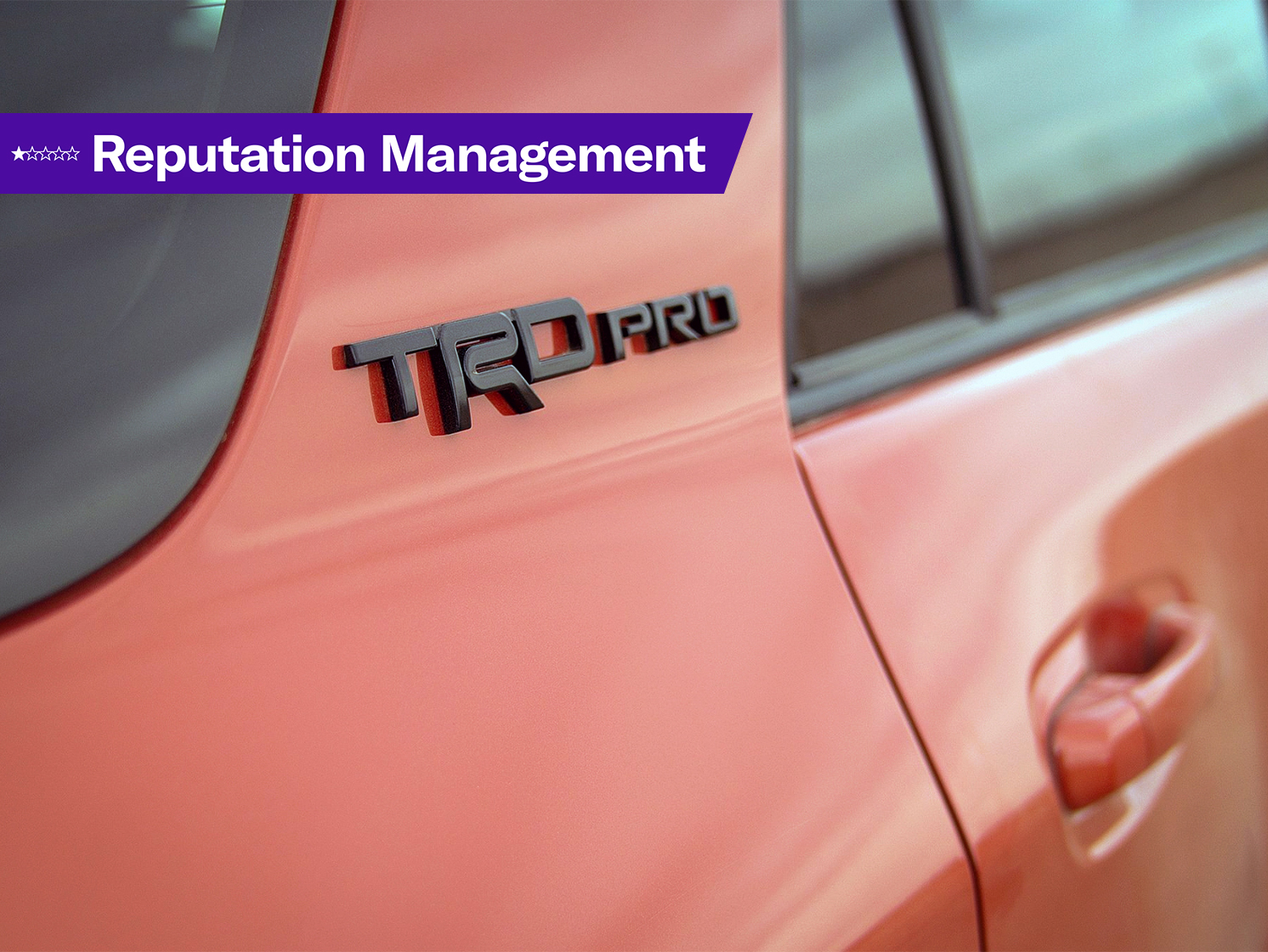Reputation Management: The Unapologetic Boost

The Hidden World of Automotive Up-Badging
Reputation management in the automotive industry isn’t just about maintaining a positive image online—it’s also about navigating the tricky waters of customer behavior, including some questionable practices. As someone who has spent years managing the reputations of major automotive retailers, I’ve seen it all. From exaggerated claims to outright deception, the car business is full of surprises. One of the most intriguing and often amusing trends I’ve come across is up-badging.
Up-badging refers to the practice of installing emblems or decals from more prestigious models onto less expensive vehicles. This isn’t a new phenomenon. In the 1960s and 1970s, for example, it was common to see larger V-8 engine emblems on smaller cars. Today, the trend continues with fake AMG badges on Mercedes, M-series stickers on BMWs that never existed, and Grand Sport decals on base Corvettes. Even more surprising are the Plaid decals appearing on Tesla models that don’t meet the horsepower requirements. Some people even go as far as adding Maybach or Bentley emblems to luxury cars that aren’t even built by those brands.
While these modifications might seem harmless, they can lead to serious consequences when it comes to vehicle transactions. A few years ago, I had a firsthand experience with this issue during my time as a reputation manager. It started with a simple trade-in request. A customer came into one of our dealerships with what he claimed was a near-perfect 2017 Toyota 4Runner TRD PRO. He wanted to trade it in for a used Sequoia Platinum, hoping to get a good deal.
The problem was that the 4Runner he brought in wasn’t actually a TRD PRO. Instead, it was a TRD Off-Road model, which lacks the suspension features of the PRO version. But the key issue was the presence of PRO emblems on the C-pillars. These were not genuine; they were simply stickers applied by the owner to make the vehicle look more valuable.
When we inspected the car in person, it became clear that the up-badging was deliberate. The customer had used our online trade-in calculator to get an estimate without entering the VIN or license plate number. He provided a photo of the PRO emblem, which made the valuation appear higher than it should have been. However, once we saw the actual vehicle, we knew it didn’t meet the standards of a true TRD PRO.
Larry Reagan, a long-time Toyota dealer, was involved in this situation. Known for his friendly demeanor and strong relationships with customers, Larry handled the interaction with grace. He understood the importance of transparency and integrity, even when dealing with deceptive practices. While the customer was disappointed, Larry ensured that the process remained fair and honest.
This incident highlights the challenges that reputation managers face in the automotive industry. On one hand, we need to maintain a positive image for our dealerships and brands. On the other hand, we must address issues like up-badging without damaging our credibility. It’s a delicate balance, and one that requires both discretion and a strong ethical foundation.
As a reputation manager, I’ve learned that trust is everything. Whether it’s building relationships with customers or ensuring that our dealerships operate with integrity, honesty is the best policy. And while up-badging may be a tempting way to boost the perceived value of a vehicle, it ultimately undermines the very trust that keeps the automotive industry running smoothly.
In the end, the goal is always to provide customers with accurate information and fair deals. That means being vigilant against deceptive practices and ensuring that every transaction is transparent and honest. After all, in the world of car sales, reputation is everything.
Post a Comment for "Reputation Management: The Unapologetic Boost"
Post a Comment